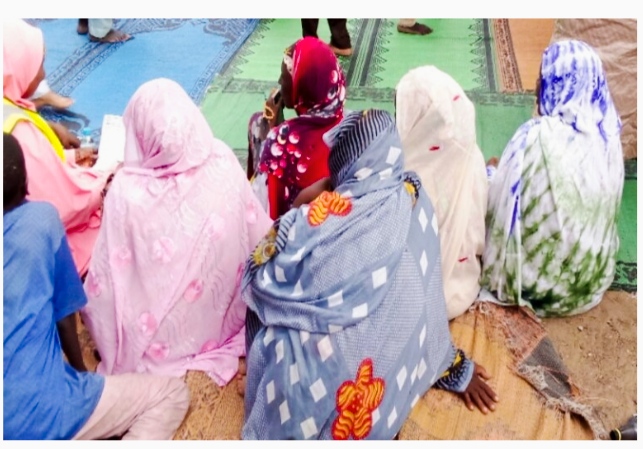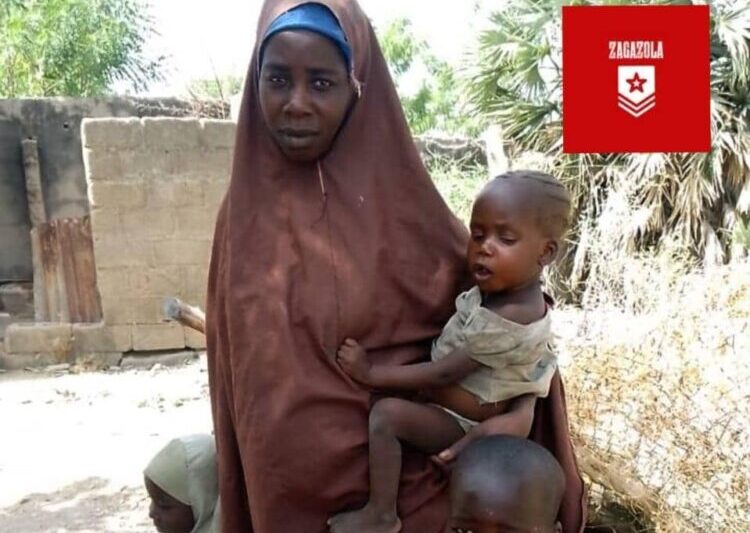More women are likely to reduce the amount they eat to save food for their children, the elderly and/sick people – and in some cases women skip meals altogether to stop their children from starving to death.
This is according to a report published by UN Women, which also linked the rising food insecurity among women to their engagement in unpaid labour, including domestic work, such as food preparation, provision and processing, at the expense of their physical and mental wellbeing.
The report, Global Gendered Impacts of the Ukraine Crisis, stated that the crisis had affected food production, prices had soared and there was less food availability and access. This had pushed more women than men into acute food insecurity and malnutrition, while intensifying gender inequality and sexual and gender-based violence (SGBV).
Although the report was about the effects of the ongoing Russia-Ukraine war, RNI reporter Ummi Fatima Baba Kyari found that there were startling similarities among women in Kawar Maila, an internally displaced persons’ camp in Maiduguri.
One mother told her: “If we don’t have food, we all go to bed with empty tummies – if we do have food, I give it to my children and husband first and I might get to eat the last bit.”
Bintu Kawu said: “I have seven kids. My husband’s job is pushing a cart carrying water around town. When he sells, he gets paid and brings the little he received and we can buy food with that. But often he does not get any money. Sometimes I just feed our children whatever we have because they need food more than we do and so, my husband and I stay hungry. Forget about nutritious food, we’re lucky to have any food.”
Yakura Baba Gana, a water seller in the camp, said: “I have eight children and we just never have enough food. If I am lucky, we will get a little money to buy food. I make sure the children eat first. If there is enough, I will eat. Sometimes we soak dry cassava and drink it and then go to sleep. If we don’t have cassava grain, we go to sleep hungry.”
Mustapha Gana, a clinician inside Kawar Maila Camp, said: “We take care of children who are younger than five years old. We observe their health and look for any signs of malnutrition. Then we give them the processed healthy ingredients in what we call ‘Tamuwa’, which has nutrients that can help to build a stronger body and immune system for the child.
“Without Tamuwa there is risk that the children will not develop normally and could end up with malnutrition. They will have less energy and stamina and will not be able to fight of infections because their immune systems will be compromised. Sometimes babies don’t get enough milk from their mothers and they both end up suffering from acute malnutrition.”
Tamuwa is a Hausa word for ‘malnutrition medicine’.
Gana said it was awful to see how many women in the camp were starving, having given their children and their husbands any food that they could lay their hands on, but not eating anything themselves.
“The women’s suffering is bad for the babies in particular because if the mother does not get enough to eat – especially nutritious food – the babies will not be healthy.”
In July, ReliefWeb, a humanitarian information service provided by the United Nations Office for the Coordination of Humanitarian Affairs (OCHA), quoted Matthias Schmale, the UN’s resident and humanitarian coordinator for Nigeria, as saying: “Today in northeast Nigeria, millions of people are facing the painful consequences of a deteriorating food security and nutrition crisis. Food insecurity means not knowing when or where your next meal will come from. It means, in essence, not being able to meet the basic needs for yourself or your family.
“As a result, countless families are forced to make alarming sacrifices to survive. Many, particularly children, are at risk of not making it through the lean season. According to the latest food security assessments, 4.1 million people in Borno, Adamawa and Yobe States – three of the states in northeastern Nigeria, are at risk of severe food insecurity in the lean season.
“People’s resilience and coping mechanisms have been devastated by more than a decade of conflict. As food insecurity worsens, so does the risk of malnutrition. In 2022, 1.74 million children under five are expected to suffer from acute malnutrition across the northeast. Mothers who have lost their children to malnutrition can testify to the danger it poses and the sorrow and despair it brings.”
AISHA SD JAMAL








